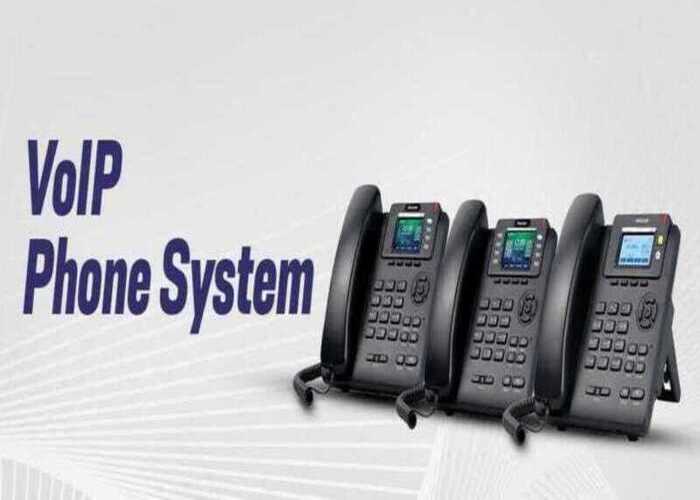Introduction
VoIP, or Voice over Internet Protocol, has become a cornerstone of modern communication strategies for businesses of all sizes. In this article, we’ll explore the multifaceted advantages that small businesses can derive from implementing VoIP solutions. From cost savings to enhanced productivity, we’ll delve into the intricacies of how VoIP can revolutionize communication for small enterprises.
Understanding VoIP
VoIP, at its core, is a technology that enables voice communication over the internet, replacing traditional telephone lines. This evolution in telephony brings forth numerous benefits, including improved call quality and cost-effective communication solutions. Small businesses, in particular, stand to gain significantly from adopting VoIP.
VoIP Features for Small Businesses
Cost-Effective Communication
Small businesses often operate on tight budgets, and VoIP phone system present a viable solution to cut communication costs. With internet-based calls, businesses can achieve substantial savings compared to traditional phone services.
Scalability and Flexibility
As small businesses grow, so do their communication needs. VoIP systems offer scalability, allowing companies to easily expand or modify their communication infrastructure without the need for extensive hardware upgrades.
Enhanced Productivity
Streamlined Communication
VoIP streamlines communication by centralizing various communication channels. This unified approach enhances efficiency by reducing the time employees spend toggling between different platforms.
Collaborative Tools
VoIP goes beyond voice communication, integrating collaborative tools like video conferencing and instant messaging. This fosters seamless collaboration among team members, regardless of their physical location.
Cost Savings
Lowered Communication Costs
Traditional phone services often come with hefty bills, especially for long-distance calls. VoIP leverages the internet, significantly reducing costs associated with communication, especially for businesses with a global reach.
Elimination of Infrastructure Expenses
VoIP eliminates the need for a complex telephone infrastructure, saving small businesses from the expenses of purchasing and maintaining traditional phone systems.
Quality of Service
Clearer Calls
VoIP technology enhances call quality, providing clearer and more reliable connections. This is crucial for small businesses where effective communication can make a significant difference in daily operations.
Reliable Connections
Unlike traditional phone lines susceptible to weather conditions and physical damage, VoIP ensures reliable connections, minimizing downtime and disruptions in communication.
VoIP Security Measures
Encryption Protocols
Security is a paramount concern for businesses, and VoIP addresses this by employing robust encryption protocols to safeguard communication data from potential threats.
Threat Detection Systems
VoIP systems often come equipped with threat detection mechanisms, actively identifying and neutralizing potential security risks before they can impact the communication infrastructure.
Choosing the Right VoIP Provider
Factors to Consider
Selecting the right VoIP provider is crucial for maximizing the benefits. Factors such as reliability, customer support, and scalability should be carefully considered to ensure a seamless integration into the business’s operations.
Case Studies
Examining case studies of businesses that have successfully implemented VoIP can provide valuable insights into the potential advantages and challenges.
VoIP Integration with Other Technologies
CRM Integration
Integrating VoIP with Customer Relationship Management (CRM) systems enhances customer interactions by providing a comprehensive view of customer communication history.
VoIP and Cloud Services
Leveraging the cloud further enhances the flexibility and accessibility of VoIP systems, allowing businesses to adapt to dynamic operational needs.
Challenges and Solutions
Bandwidth Concerns
One common concern with VoIP is the potential strain on bandwidth. We’ll explore strategies to address bandwidth challenges and ensure a smooth communication experience.
Troubleshooting Common Issues
No technology is without its challenges. This section will discuss common VoIP issues and provide troubleshooting tips for small businesses.
Success Stories
Real-life examples of businesses benefiting from VoIP will inspire small enterprises to explore the possibilities and envision the positive impact on their own operations.
VoIP Trends in Small Businesses
Future Outlook
Examining the future trends in VoIP technology provides small businesses with valuable insights for long-term planning and staying ahead in a rapidly evolving digital landscape.
Latest Technological Advancements
We’ll explore the latest technological advancements in VoIP and how they can be harnessed to further benefit small businesses.
Regulatory Compliance
Adhering to Legal Standards
Navigating the legal landscape is crucial. We’ll discuss the regulatory standards that businesses must adhere to when implementing VoIP solutions.
Data Protection Laws
Ensuring compliance with data protection laws is integral to maintaining the trust of clients and customers. This section will outline the key considerations.
VoIP for Remote Work
Facilitating Remote Collaboration
The rise of remote work makes VoIP an indispensable tool for fostering collaboration among team members spread across different locations.
Security Considerations
Securing communication channels becomes paramount in remote work scenarios. We’ll delve into the security measures businesses should implement.




